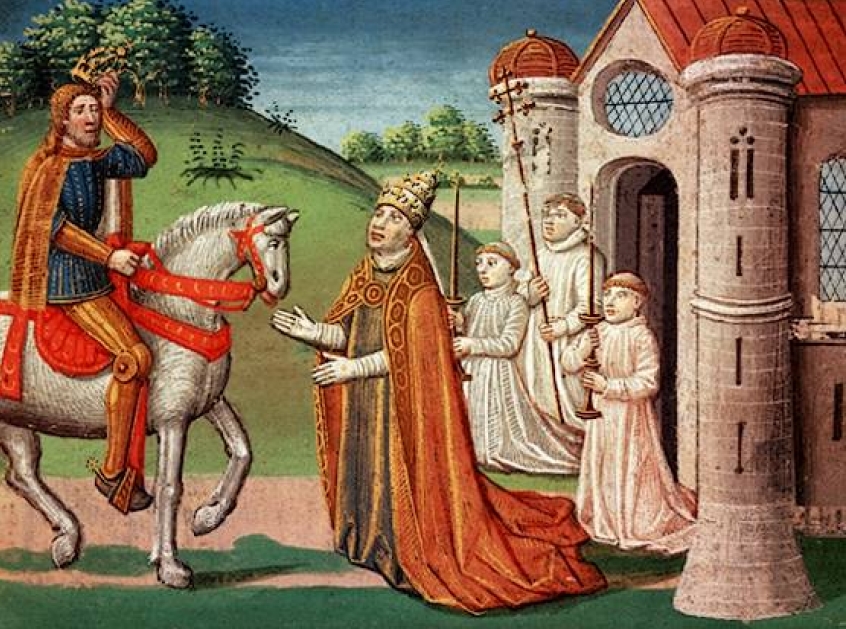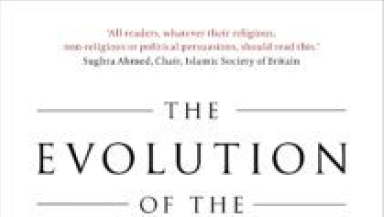We all know how it goes: the story of Western civilisation is the story of the valiant efforts by scientists and philosophers to free us from the shackles of religious superstition. The Church has been the enemy of progress, resolutely opposed to every moral and technological advance. A few great scientists might have been Christians, but they'd have been even greater if they weren't.

This is the view of history that's assumed by the New Atheists whose voices dominated public discourse until fairly recently (they're a little less strident now). And according to Nick Spencer, research director at the Christian think tank Theos, it's absolute bunk.
In a new book published to coincide with the 10th anniversary of Theos, The Evolution of the West (SPCK, £9.99), Spencer explores the origins of the ideas that form our culture today and finds they are thoroughly Christian.
It's an intellectually exhilarating tour of mainly British and European history and thought. Spencer shows that the big ideas: human dignity, the rule of law, human rights, science – and even, paradoxically, atheism and secularism – grew up and flourished in distinctively Christian soil.

Along the way he challenges many shallow and ill-informed prejudices about Christianity. It's easy enough to point to what Christians have done, in the name of Christianity ("Christians have burnt each other, quite persuaded/ That all the apostles would have done as they did," as Byron wrote). But what's harder is to point to the way the deep structures of thinking gradually changed, and influenced how they came to behave.
So, for example, Spencer looks at the influence of Christianity on the barbarian kingdoms that succeeded Rome. Charlemagne, the "heroically brutal", insisted on taking an oath of allegiance from all his subjects, even slaves; quoting Larry Siedentop, Spencer says this would have been "unthinkable in antiquity, where one might as well have asked for an oath from a packhorse". Christianity introduced the idea that people were valued because they were people, not just because of their role or status.
There are plenty more nuggets like this. Spencer has chapters on the idea of a Christian nation, Magna Carta and the law, democracy, atheism and science. The "religion of human rights" is critiqued and found to rest on very shaky foundations once its grounding in Christianity is knocked away. In the current political climate, a chapter on Christianity and the welfare state is particularly relevant.
Speaking to Christian Today, Spencer said: "We are less familiar with our Christian past and its impact than we have ever been. It's important to honestly describe Christianity's influence on us.
"It's impossible to understand our national past, present and maybe future without an understanding of our Christian past."
Understanding cultural history, he says, "helps us understand the ground beneath our feet".
Religion has a difficult time in public discourse at present. "The challenge is that religion is a hopelessly capacious word. It takes in everyone from the Quakers to Al Qaeda," Spencer says. And the media commentators and opinion formers aren't best placed to help, either. He says: "People in the commentariat are less likely to be religious. So religion is about what 'others' do or believe. They don't understand it and they think it's a threat.
But "Christianity has been coursing through our nation's bloodstream for a long time. It's unhistorical to see it as an alien presence."
In an age of increasing irreligiousness, how does Spencer see the place of Christianity in national life in the future?
"There are lots of different ideas, beliefs and commitments today. One of them is Christianity. I don't see any drift from this deep pluralism. So the question is, how do we adjudicate between national actors? Christianity has a lot of compelling ideas and they are incorporated into how people live and how communities live. But all creeds and ideas are increasingly called on to justify themselves."
One way of doing this is to earth ideas in action, he says.
"It will be increasingly important not just to say, 'This is the good I want to see', but to demonstrate it. If I am campaigning about debt, consumerism and indebtedness, some will disagree with me. But my position is strengthened if I back it up so I can show how I have pastorally responded." He instances the debt counselling charity Christians Against Poverty and the Archbishop of Canterbury's credit union plan: "In a situation of deep divisions, actions speak louder than words."
This isn't a long book, but it isn't a light or easy read either. Spencer says it isn't intended to be a work of scholarship, though there's plenty of scholarship in it. But no one who's really serious about understanding why we think the way we do today should ignore it. And anyone who thinks Christianity is irrelevant to modern life should read it before they say something very foolish.
Follow Mark Woods on Twitter: @RevMarkWoods













